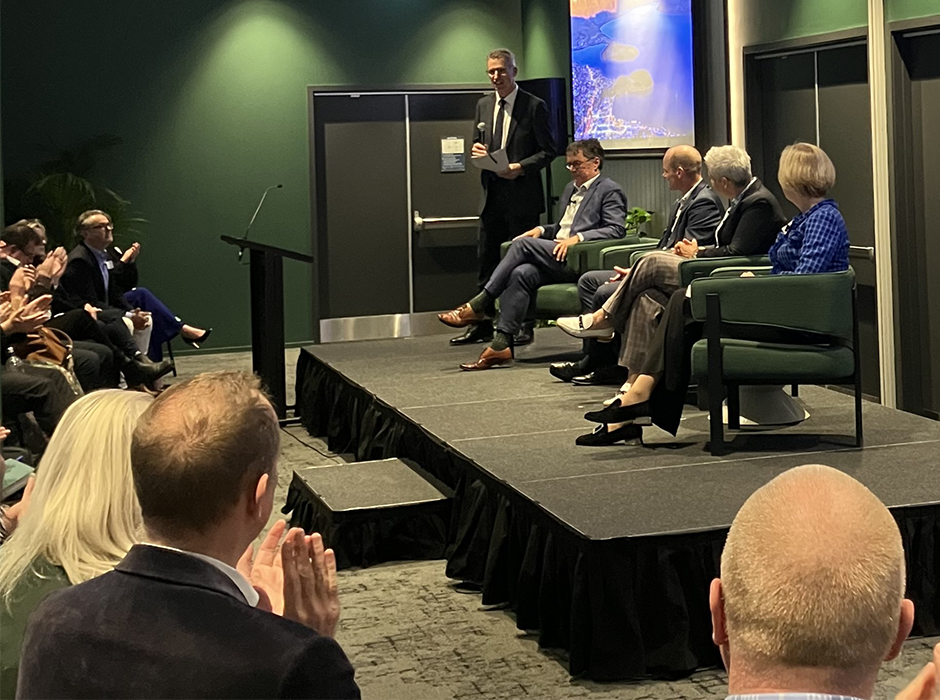
Outlining the benefits and risks of Artificial Intelligence at a panel discussion in Queenstown this week are (from left) Division of Sciences Pro-Vice Chancellor Professor Richard Barker, Emeritus Professor James Maclaurin, Associate Professor Grant Dick, Charlotte Walshe, and moderator Christine Maiden Sharp.
The University of Otago this week laid out its intentions to create a permanent physical presence in Queenstown and the Lakes District.
Its aim is to drive the growth of both the University and the region, with a particular focus on supporting the region as a technology hub and centre for innovation.
Fittingly, as part of its engagement with community stakeholders about its plans, the University held a panel discussion on the opportunities and challenges of Artificial Intelligence.
Moderated by Aspen Institute NZ CEO, Christine Maiden Sharp, the panel included Otago’s Emeritus Professor James Maclaurin, of the Centre of AI and Public Policy, and Associate Professor Grant Dick, Head of School of Computing, alongside Charlotte Walshe, Te Whai Ao Dodd-Walls Centre Governance Board Chair.
The group shared its thoughts on utilising AI, breaking taboos of the technology, as well as how to mitigate its use for nefarious purposes.
When asked what the impact of AI will be in the next 10-15 years, Grant said it will change significantly, predicting that a lot of the guidance and support we’ll have in health and education will be mediated through AI, but it will not supplant human activity.
“In our day-to-day lives, we’ll have far more engagement with AI, more importantly I think we’ll be far more aware of it . . . but that will be a good thing because that will allow us to engage with it in a way that we can accept certain compromises that we might not accept in a human.”